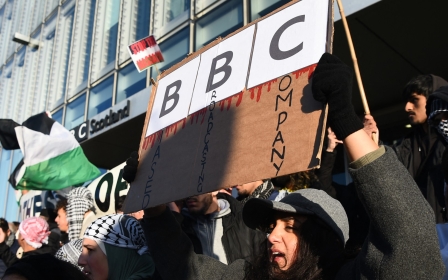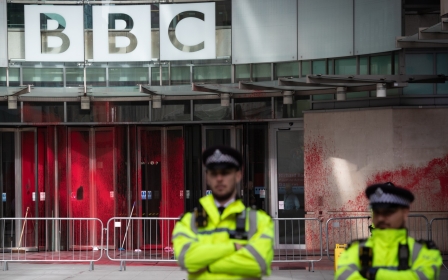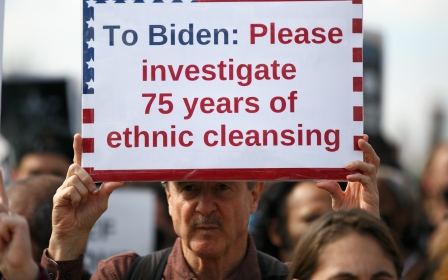Israel-Palestine war: Israeli journalists have become mouthpieces for the mob
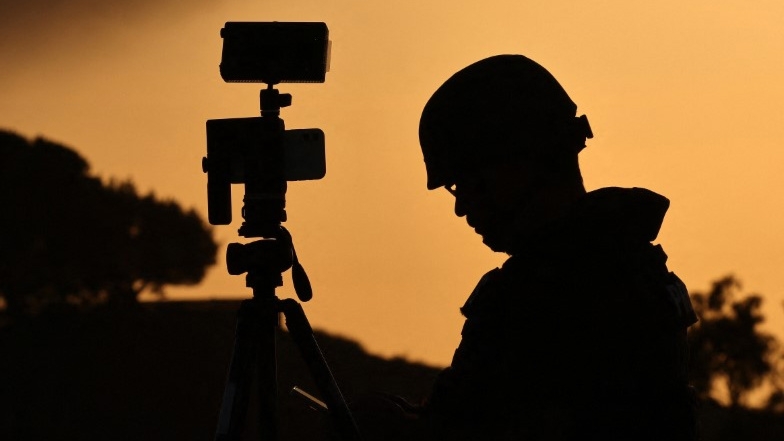
There are many ugly facets of Israel’s genocidal war against 2.3 million Palestinians in Gaza. The ongoing, horrific onslaught and its immediate fallout are the ugliest. But the disgraceful conduct of major western powers has also been devastating to witness.
Unprecedented in its scale and brutality, this war is being waged with the endorsement of western powers, led by the strongest empire on earth, which claims to be defending human rights and democratic values.
More shameful still is the support provided by corporate media for what has been dressed up by the US as Israel’s “right to defend itself”.
This continuing support becomes even more shocking with each passing day, as ordinary Palestinians and people around the world watch the horrific scenes being broadcast live from Gaza.
Analysts and observers have pointed to the colonial history of western states - including the US, built on the ruins of Native American societies - to explain the logic behind this Zionist war.
New MEE newsletter: Jerusalem Dispatch
Sign up to get the latest insights and analysis on Israel-Palestine, alongside Turkey Unpacked and other MEE newsletters
The difference is that the Israeli settler-colonial project has been unable to reach its ultimate goal, and in its ongoing drive for expansion, it is inflicting further injustices on Palestinians, who refuse to be annihilated and continue to insist on their rights.
Israel’s approach is in line with historian Patrick Wolfe’s theory of the “logic of elimination”, which views settler-colonialism through the lens of a perpetual system of indigenous erasure, rather than a single historical event.
False 'self-defence' narrative
Both the settler-colonial framework and the apartheid framework have been revived in mainstream western academic circles in recent years, providing a powerful analytical tool by which pro-Palestinian activists can counter Zionist propaganda.
In Israeli media, meanwhile, the state’s propaganda machine is desperately struggling to sustain the false “self-defence” narrative, even as protesters continue to flood the streets of western capitals.
Follow Middle East Eye's live coverage for the latest on the Israel-Palestine war
Among those protesting are academics and intellectuals who know well the roots of the Israel-Palestine conflict and the events leading up to the 1948 Nakba. This is not a dispute between symmetrical parties; nor did the Hamas operation, which regrettably entailed the killing and abduction of civilians, take place outside of this wider historical and political context.
The Israeli journalists muffling this perspective are contributing to the further indoctrination of Israeli society
Through my regular monitoring of Hebrew-language television and radio news broadcasts - an especially tormenting experience during times of war - I have seen Israeli journalists repeatedly expressing their deep frustration with the mushrooming of the global civil solidarity movement, especially among Israel’s ally states, such as the US, Britain, Germany and France.
Indeed, many Israeli journalists stop acting as journalists in times of war, or even during more limited confrontations with Palestinians. They often urge the acceleration of the eradication of Palestinian resistance.
Their journalistic mission is diverted into one of mobilising Israeli society and serving as a mouthpiece for the Israeli army, whose version of events they automatically adopt and defend. In the current genocidal war, the exclusion of dissenting voices from news programmes has been total.
Silencing Palestinians
Representatives of Palestinians in Israel, such as Knesset members and anti-occupation academics, are no longer invited to appear. They are not given a platform to express their calls for an end to the war, nor to condemn police bans on protests by Palestinian citizens against the slaughter of their brethren in Gaza and the occupied West Bank.
At the same time, dozens of Palestinian citizens of Israel have been arrested or fired from their workplaces for expressing sympathy with the victims of Israel’s onslaught against the Gaza Strip.
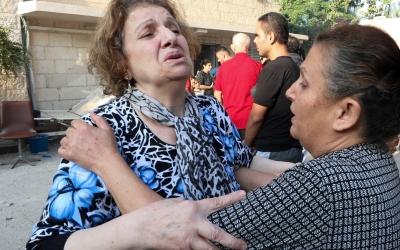
Whether consciously or unconsciously, the Israeli journalists muffling this perspective are contributing to the further indoctrination of Israeli society, which is already hostile towards Palestinian rights. This risks exacerbating the trends of extremism and fascism in Israel.
Instead of asking tough questions in the aftermath of the Hamas operation, journalists are lining up with the mob, and thereby rendering more remote the possibility of peace and justice for all.
But the swift and blind support given by western powers to Israel’s rush for vengeance, along with Israel’s sense of unlimited power, will evaporate swiftly at the end of this war, as the Palestinian cause remains on the table with even stronger support. Israel will then have to confront the difficult but inescapable questions that it has pushed aside over the past month.
At the end of this war, the world will look quite different. Among other consequences, western states whose leaders have insisted on standing behind Israel’s ruthless onslaught will have been dragged into the swamp of war crimes - and the pretence that they constitute an "enlightened world" will have become a joke.
The views expressed in this article belong to the author and do not necessarily reflect the editorial policy of Middle East Eye.
Middle East Eye delivers independent and unrivalled coverage and analysis of the Middle East, North Africa and beyond. To learn more about republishing this content and the associated fees, please fill out this form. More about MEE can be found here.



